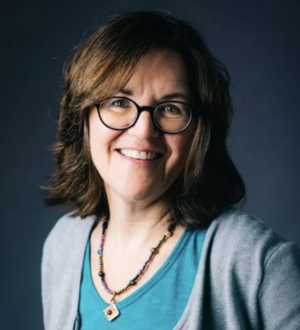La La has crime in her blood as surely as the Flying Wallendas have acrobatics, and the Kennedys, politics. ~from Other People's Pets by R. L. Maizes
I adore Other People's Pets! It is fresh and heartfelt, a perfect read during stressful times. La La and her father Zev will win your heart.
Even if they are burglars.
LaLa's mother ran off when she was nine. She wasn't a very good mother. When they were ice skating, LaLa fell through the ice and her mother didn't notice. LaLa was rescued by a large black dog. The near-death-event left her an animal empath.
Zev was a locksmith by day and a burglar by night. He homeschooled LaLa and took her on his heists, isolating her to protect himself. He couldn't risk his daughter giving away his secret life. LaLa has a special relationship with a veterinarian who notices her insight into animals and takes her under his wing.
LaLa is in vet school, living with her fiance, when her father lands in prison, unable to make bail. He was caught after calling 911 to help the man he was robbing. LaLa makes the hard decision to put her dad first.
As LaLa's life stray further from her dreams, she takes comfort that she only robs houses with ailing pets she can help.
LaLa and Zev have never recovered from their abandonment. Zev still carries a torch for his wife and LaLa dreams of gaining her mother's approval, which brings them to a fatal meeting.
LaLa faces a series of heartbreaking losses, including her beloved dog, Black. In the end, LaLa realizes the true meaning of family and finds her place in the world.
I love Mazies humor. Descriptions like, "The pores on his nose are big enough to house a fly" and "ears grown large from listening," and Zev's business name of "Honesty Locksmith," kept me laughing out loud.
I loved R. L. Mazies book of short stories We Love Anderson Cooper, filled with memorable, flawed, yet loveable characters.
Read an excerpt from Other People's Pets here.
I was given a free egalley by the publisher through NetGalley in exchange for a fair and unbiased review.
Other People's Pets
by R.L. Maizes
Celadon Books
Pub Date July 14, 2020
ISBN: 9781250304131
hardcover $26.99 (USD)
 |
| R.L. Mazies |
R.L. Maizes was born and raised in Queens, New York. She now lives in Boulder County, Colorado. Maizes's short stories have aired on National Public Radio and have appeared in the literary magazines Electric Literature, Witness, Bellevue Literary Review, Slice, and Blackbird, among others. Her essays have been published in The New York Times, The Washington Post, Lilith, and elsewhere. Maizes is an alumna of the Bread Loaf Writers’ Conference, the Sewanee Writers’ Conference, and the Tin House Summer Writer’s Workshop. Her work has received Honorable Mention in Glimmer Train’s Fiction Open contest, has been a finalist in numerous other national contests, and has been nominated for a Pushcart Prize. She is the author of the short story collection We Love Anderson Cooper.from the publisher
R.L. Maizes's Other People’s Pets examines the gap between the families we’re born into and those we create, and the danger that holding on to a troubled past may rob us of the future.
La La Fine relates to animals better than she does to other people. Abandoned by a mother who never wanted a family, raised by a locksmith-turned-thief father, La La looks to pets when it feels like the rest of the world conspires against her.
La La’s world stops being whole when her mother, who never wanted a child, abandons her twice. First, when La La falls through thin ice on a skating trip, and again when the accusations of “unfit mother” feel too close to true. Left alone with her father—a locksmith by trade, and a thief in reality—La La is denied a regular life. She becomes her father’s accomplice, calming the watchdog while he strips families of their most precious belongings.
When her father’s luck runs out and he is arrested for burglary, everything La La has painstakingly built unravels. In her fourth year of veterinary school, she is forced to drop out, leaving school to pay for her father’s legal fees the only way she knows how—robbing homes once again.
As an animal empath, she rationalizes her theft by focusing on houses with pets whose maladies only she can sense and caring for them before leaving with the family’s valuables. The news reports a puzzled police force—searching for a thief who left behind medicine for the dog, water for the parrot, or food for the hamster.
Desperate to compensate for new and old losses, La La continues to rob homes, but it’s a strategy that ultimately will fail her.























